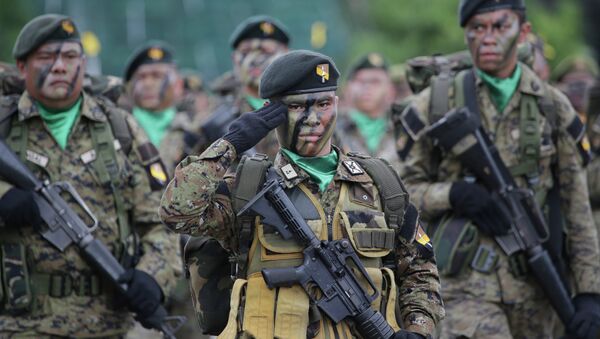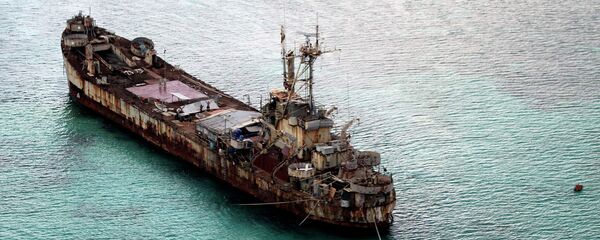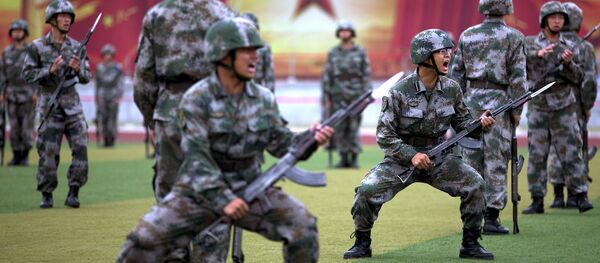A series of programs aimed at modernizing the Philippines' aging navy and creaking air force stalled early last year prompting fierce debate about the country's corruption and funding problems.
"The delays leave long-held plans to build a "minimum credible deterrent" — comprising small but capable air and naval fleets-at least a decade from completion," Manila-based US journalist Trefor Moss underscored, citing the Philippines' defense consultant Jose Antonio Custodio.
A few years ago, Philippine President Benigno Aquino III pledged to restore the country's military capability which was undermined by protracted underinvestment. The President vowed to spend almost $1.7 billion on new equipment.
Surprisingly, although the Philippines Congress had passed the law approving $2 billion for defense procurement in 2013, the bill has not yet been signed by the President.
In light of this, the only chance for the Philippines to upgrade its relic weaponry is to obtain secondhand equipment from allies such as Tokyo and Washington, according to experts.
However, the necessity for the Philippines' military buildup is not entirely due to the perceived threat from China.
"It is wrong to think about military modernization as solely being directed at China," Washington D.C.-based expert in Asian security affairs Prashanth Parameswaran stressed.
"The Philippines faces a range of internal and external challenges — including insurgencies, natural disasters, unresolved territorial and sovereignty issues with neighboring states, and a significant lag when it comes to keeping up with the Joneses in Asia more generally," Parameswaran underscored.
Although there is a consensus about the idea that the country should beef up its military capabilities, this goal is dependent on the Philippines' financial circumstances. Since the country's economy has been doing relatively well, the outgoing Aquino administration hails the idea of military modernization.
However, there is no guarantee that the future government will be committed to the same concept and will shield the defense sector from cuts, according to Parameswaran.





